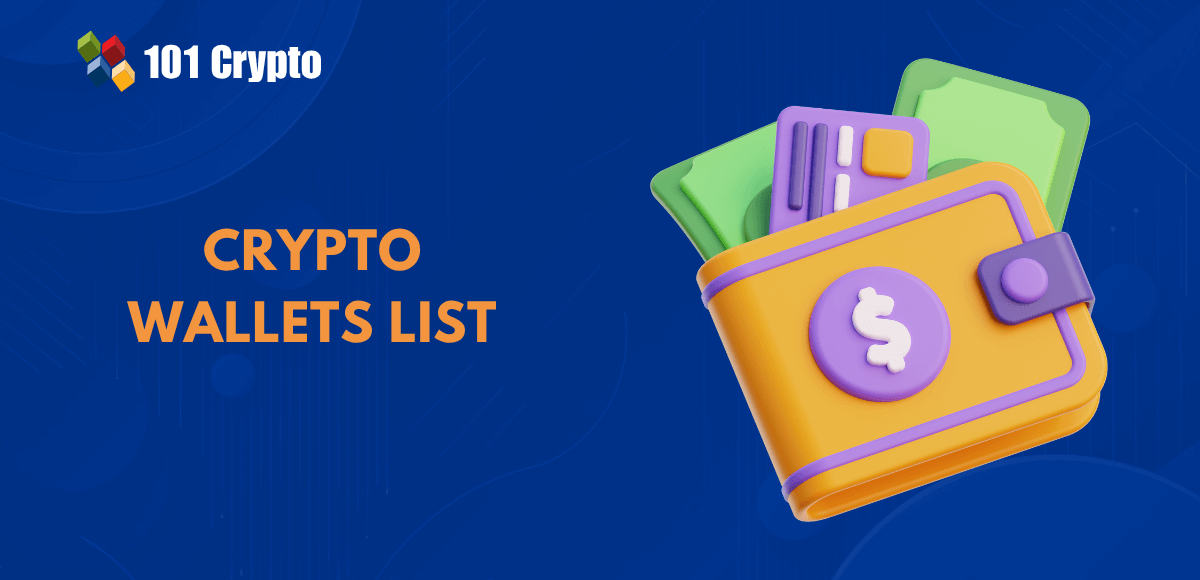Crypto wallets offer the easiest solution to interact with cryptocurrencies. You can use crypto wallets to store, receive and sell different types of crypto assets. The task of choosing one best pick from a crypto wallet list in 2025 may not be the easiest one. Crypto owners need something to secure their assets from different types of threats. At the same time, you will also need something that helps you access your cryptocurrencies instantly without any concerns.
Crypto wallets help you keep your cryptocurrencies safe and also provide instant accessibility for your crypto assets. Can you find both security and accessibility in crypto wallets? This is where you will have to think about two different types of wallets, hot and cold crypto wallets. Let us learn more about the differences between hot and cold wallets in the domain of crypto.
Enroll now in the Bitcoin Fundamentals Free Course to gain deep insights on how the Bitcoin blockchain works.
Understanding Hot Wallets
The most common category of crypto wallets that you will come across is hot wallets. You can think of them as the cash wallets you use for carrying physical cash with you for quick transactions or small purchases. The answers to “Which crypto wallet is the best?” will showcase hot wallets as the best option for convenience. Users who need cryptocurrencies for smaller transactions, frequent trading and daily purchases can rely on hot wallets.
Hot wallets work by storing your private keys for assets on different blockchain networks. The distinctive trait of hot wallets is the active internet connectivity required to make them work. Most of the hot wallets offer simple user-friendly interfaces that offer simpler workflows for managing digital assets. You can find different variants of hot wallets, which you can choose according to your needs.
The different types of hot wallets are exchange wallets, desktop wallets and mobile wallets.
Exchange wallets are the hot wallets you can find on cryptocurrency exchanges, such as Kraken or Coinbase. The exchange wallets hold your private keys and offer the ideal solution for beginners who cannot figure out how to enter the crypto space. Users don’t have control over their private keys in exchange wallets, thereby creating custodial risks.
Mobile wallets are also one of the common highlights in hot vs. cold crypto wallet comparisons due to their growing adoption. You can download them as apps in your smartphones and they allow you to have custody of private keys. However, mobile wallets are vulnerable to security risks due to hardware problems and malware threats.
Desktop wallets function as software installed directly on your desktop computers or laptops. The security of desktop wallets is slightly better than exchange wallets and mobile wallets, as long as you safeguard your computer.
Understanding Cold Wallets
Cold wallets work exactly like the opposite of hot wallets i.e. without active internet connection. The distinctive trait of any cold wallet is that it does not require internet connectivity for conducting transactions. Even if you have to connect some cold wallets to the internet for broadcasting transactions to blockchain, your private keys are never exposed online.
The working mechanism of cold wallet crypto transactions is extremely simple. You can connect the cold wallet or hardware wallet to a physical device connected to the internet, like your computer or smartphone. Users can sign transactions with their private keys offline and send them to the network. Therefore, your private keys never leave the secure environment of the cold wallet.
The common types of cold wallets include hardware wallets and paper wallets. Hardware wallets are the most popular category of cold wallets as paper wallets basically involve writing down your private and public keys on a piece of paper. Hardware wallets are physical devices that have a design like USB drives and store your private keys. Some hardware wallets also provide a small screen and buttons to verify crypto transactions.
Find out the best crypto wallets with an overview of their features and how they can serve different target audiences.
Comparing Hot Wallets with Cold Wallets
The comparison between hot wallets and cold wallets is a mandatory requirement for every crypto user. You must know how the cold wallet vs. hot wallet crypto comparison can help you identify the ideal wallet for your requirements. The most clearly visible difference between hot wallets and cold wallets is internet connectivity. On the other hand, you should also pay attention to the following points for comparing hot wallets with cold wallets.
-
Cost
The cost of a crypto wallet will be obviously one of the major decisive factors in the choice of wallet. As a beginner, you might think many times before investing your hard-earned money in a crypto wallet. In such cases, hot wallets are the best option as most of them are free. As a matter of fact, some hot wallets also offer interest on crypto stored in them. On the other hand, hardware wallets require the purchase of a physical device, which may cost between $50 and $250. You can also find many other high-end hardware wallets with costlier price tags.
-
Ideal Usage Scenario
The next important factor for comparing the best options in a crypto wallet list points at the ideal scenarios to use them. Hot wallets are the best options when you want convenience and cold wallets are ideal for situations where security matters. You can use hot wallets for everyday crypto transactions, such as frequent trading or small purchases. On the other hand, cold wallets or hardware wallets offer the best results for long-term storage of cryptocurrencies. Since cold wallets remain isolated from the internet, you can use them to store your cryptocurrencies for a longer time without security risks.
-
Security
Irrespective of the upper hand that cold wallets have over hot wallets in terms of security, it is important to compare the two types of wallets for their security features. Hot wallets might not have earned a reputation for offering the best security. However, the competition between hot wallets in the market and innovation has led to the introduction of wallets with advanced security features. On the other side of the spectrum, cold wallets have excelled at safety against online threats. At the same time, you must not forget that cold wallets are vulnerable to risks like physical damage, loss or theft.
-
Asset Recovery
The differences between cold wallets and hot wallets also focus on the element of asset recovery. What will happen if you lose access to your cryptocurrencies? The hot vs. cold crypto wallet debate points out that hot wallets offer better recovery and backup options. You can use multiple devices to recover your assets, if you have your private keys and seed phrase. Cold wallets also offer the facility of recovery options for lost passwords. At the same time, users should also know that losing a cold wallet device means losing your crypto forever.
-
Ease of Transactions
The most crucial factor that determines the effectiveness of crypto wallets is the ease of transactions. Hot wallets are more convenient than cold wallets as they can facilitate seamless transactions. Hot wallets are always connected to the internet, thereby ensuring transaction finality within seconds. On the other hand, cold wallets also facilitate instantaneous transactions albeit with delay due to additional steps in using them. For instance, you have to connect the cold wallet to a device connected to the internet before signing transactions. As a result, you will find a significant time difference in transactions for hot wallets and cold wallets.
Final Thoughts
The list of differences between hot and cold wallets for cryptocurrencies reveals that both types of wallets have been created for different scenarios. You have to pick cold wallet crypto solutions for long-term storage of cryptocurrencies and hot wallets for daily transactions. The difference between cold and hot wallets is the fact that hot wallets always stay connected to the internet. On the contrary, cold wallets protect your private keys from online exposure, thereby safeguarding your assets. It is important to remember that you cannot find a one-size-fits-all solution among crypto wallets. Users can rely on a mix of hot and cold wallets to make their crypto experience more efficient and productive. Learn more about the best practices to pick a crypto wallet for you right now.
Disclaimer
The article should not be taken as, and is not intended to provide any investment advice. Claims made in this article do not constitute investment advice and should not be taken as such. 101 Crypto shall not be responsible for any loss sustained by any person who relies on this article. Do your own research!







